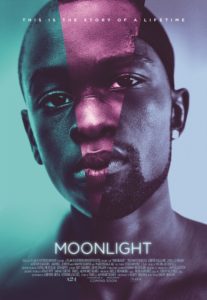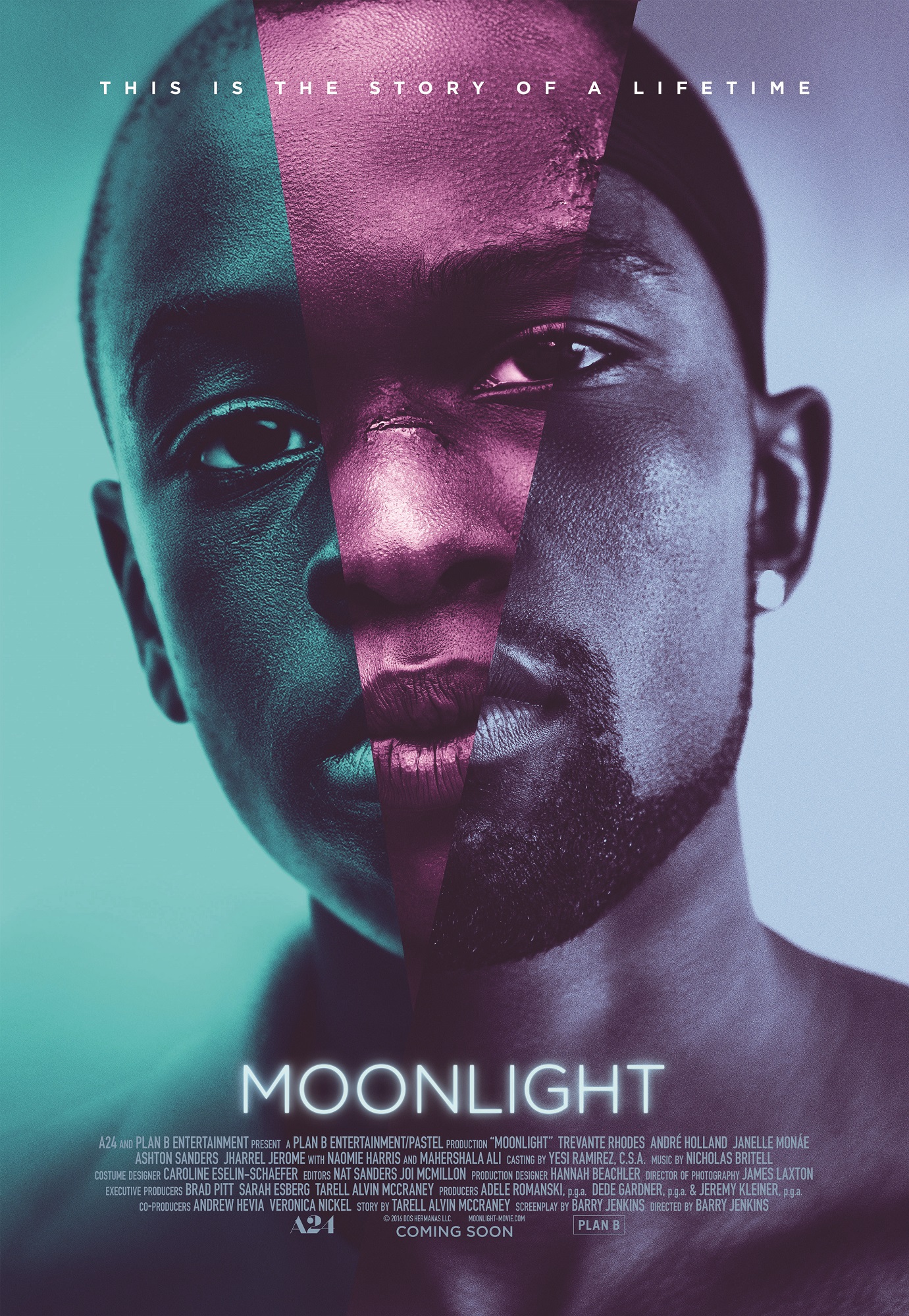“Moonlight” is a masterpiece crafted by black hands and with black minds

“Moonlight,” a film by Barry Jenkins, is receiving critical acclaim, and rightfully so. Already winning the Golden Globe for best film and resting high upon Oscar buzz, “Moonlight,” a creation of beauty and suffering that is unparalleled, is making waves and leaves all audiences at its mercy.
“Moonlight” is told in three vignettes, following the life of a young boy who turns into a young man, then a conflicted adult. He is first known as Little, then Chiron, then Black.
Little is a small and quiet child, living in balmy and breezy inner city Miami, during the war on drugs era. His mother is protective of Little, but emotionally and physically distant as she is a drug user who feels burdened by the weight of her young child’s melancholy and gentle disposition.
Because of his nature, Little is tortured—people assume that he is gay. He is beaten, teased, mocked and ostracized but learns how to live and survive within himself. Along the way, he is found and raised by a drug dealer named Juan who finds him hiding in an abandoned apartment when Little is seeking refuge from his bullies.
Juan becomes a father to Little, giving him a safe place to sleep and eat, and teaching him how to swim, be smart and be brave. Little, at one point, asks Juan what a “faggot” is and if he, himself is one. Juan gently answers that “faggot” is a derogatory term and that, if Little was gay, in time he would know and didn’t have to justify him or his identity for anyone. It seems as if Little spends a lifetime trying to believe this.
The movie continues with Little developing into Chiron, and then into Black, a full-grown man. “Moonlight” is, at some points, absolutely unbearable to watch. As a young man is coming to age in a place and in an identity that holds no mercy for him.
“Moonlight” is absolutely sensual. The score is perfection. Themes of blue and water create a thread of depth and allure, representing the internal longsuffering Chiron painfully masters throughout the course of his life.
The waves of the ocean and the feelings of heavy summer nights are mesmerizing and held by the moon, as, with age, Chiron’s own skin seems to darken, becoming deeper and bluer. A watery purple halo seemed to glow around both him and his suffering.
The film ends with Black (Chiron) visiting an old friend and former lover, relaxing in the presence of one person who has loved him, Black still an enigma. Still a small, scared boy with an alluring presence of longsuffering, torment and a soft heart longing for love.
“Moonlight” is still having its way with me, I find myself still teary-eyed as I remember scenes and dialogue. This is a film of the human condition, and this is a story of the black experience, one specifically that goes untold.
It is a masterpiece crafted by black hands and with black minds. Filled with melancholy and majesty, it shows the truth of a suffering and anointed life, and one man’s process of trading ashes for beauty.

